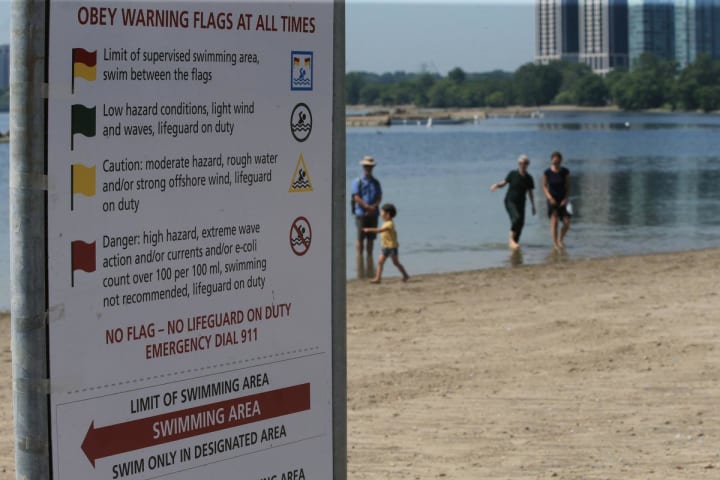インシデント 290の引用情報
Description: Toronto’s use of AI predictive modeling (AIPM) which had replaced existing methodology as the only determiner of beach water quality raised concerns about its accuracy, after allegedly conflicting results were found by a local water advocacy group using traditional means.
推定: Toronto Public Healthが開発し、Toronto city governmentが提供したAIシステムで、Sunnyside beachgoers , Marie Curtis beachgoers と Toronto citizensに影響を与えた
インシデントのステータス
インシデントID
290
レポート数
3
インシデント発生日
2022-06-03
エディタ
Khoa Lam
インシデントレポート
レポートタイムライン

thestar.com · 2022
- 情報源として元のレポートを表示
- インターネットアーカイブでレポートを表示
A safe water advocacy group is concerned for the health of Toronto beachgoers after the city’s new water quality monitoring system appears to have repeatedly allowed contaminated beaches to remain open.
This summer, the city quietly adopted…

theinformation.com · 2022
- 情報源として元のレポートを表示
- インターネットアーカイブでレポートを表示
Earlier this year, Toronto's public health department quietly flipped the switch on an experiment targeting the city's most pollution-prone beaches.
Instead of relying on day-old laboratory tests to ensure that people don't swim in unsafe w…

aisnakeoil.substack.com · 2022
- 情報源として元のレポートを表示
- インターネットアーカイブでレポートを表示
Toronto recently used an AI tool to predict when a public beach will be safe. It went horribly awry.
The developer claimed the tool achieved over 90% accuracy in predicting when beaches would be safe to swim in. But the tool did much worse…
バリアント
「バリアント」は既存のAIインシデントと同じ原因要素を共有し、同様な被害を引き起こし、同じ知的システムを含んだインシデントです。バリアントは完全に独立したインシデントとしてインデックスするのではなく、デ��ータベースに最初に投稿された同様なインシデントの元にインシデントのバリエーションとして一覧します。インシデントデータベースの他の投稿タイプとは違い、バリアントではインシデントデータベース以外の根拠のレポートは要求されません。詳細についてはこの研究論文を参照してください


